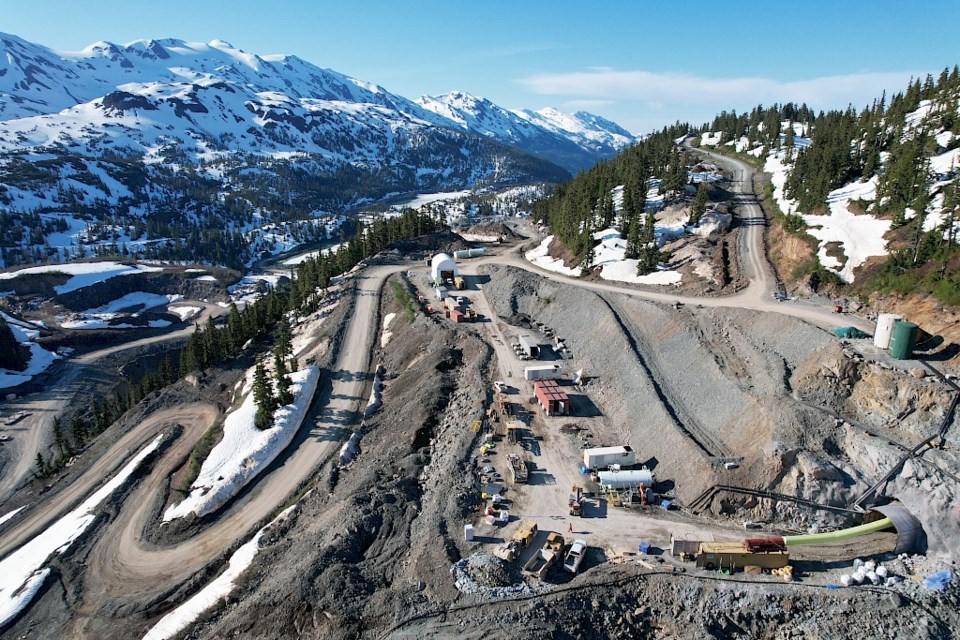Christy Smith was back on a familiar stage last week at the B.C. Natural Resources Forum at Prince George Civic and Convention Centre, the same setting where 13 years ago she discussed the economic impact and benefits to Indigenous communities about to happen with the opening of the Mount Milligan mine.
In 2010 when Smith first spoke at the conference, the copper/gold mine 155 kilometres northwest of Prince George had just passed its environmental review and permitting process. With construction about to begin there was much uncertainty about where First Nations fit into the process and how their rights on resource extraction would be identified and protected in legislation.
“At that time I would never believe I’d be sitting on a panel (in 2023) talking about positive legacy,” said Smith. “I wasn’t sure where the province of B.C. was headed with respect to the Indigenous relations we had.”
Six years after Mount Milligan began producing in August 2013, B.C. became the first government to sign the United Nation Declaration of the Rights of Indigenous Peoples (UNDRIP). The policy and its 89-point action plan requires the B.C. government to obtain informed consent before taking actions that affect Indigenous Peoples and their lands.
“When I first started in my career 25 years ago I didn’t think I’d have a career for as long as I have and really it boils down to the fact that things are changing,” said Smith, the vice-president of sustainability and Indigenous relations for Falkirk Environmental Consultants.
“UNDRIP has come in and people are starting to recognize the importance of the work that we’ve been advocating for years and years. Right now we’ve got Western science views, we’ve got the environmental assessment and now we’re starting to see the weaving of Indigenous interests into those environmental assessments and the observations Indigenous people have had for thousands of years being taken into consideration when we’re looking at a project.”
The UNDRIP agreement provides the framework for environmental assessments that formally brings First Nations governments into the process. Smith expects there will be new court challenges that delay projects but she’s encouraged the document will foster a new spirit of cooperation.
“There’s a lot of power that been provided with UNDRIP, we finally have a voice that’s louder than just what we’ve been advocating for,” said Smith. “There’s a lot of ways we can influence a project, but if you don’t do it right you could be in a lot of trouble.”
Charles Morven, secretary-treasurer of the Nisga’a Lisims Government, says the province has enormous mineral wealth and needs to develop more projects to stimulate the economy, especially in northwestern B.C., which is known for its gold ore, silver, nickel and copper deposits.
“I know the highest density of minerals for anywhere in the world is in our nation’s lands and that’s why the Golden Triangle is so important to British Columbia,” said Morven.
In September, Morven attended the Precious Metals Summit in Colorado where he spoke with mining companies and investors who shared their concerns about the lengthy and complicated federal environmental assessment process needed to get mines approved in B.C.
“That could be a huge problem in bringing investment into British Columbia and we need to have that discussion if we want to be able to move forward and build legacies, not just for Indigenous communities but for B.C. as a whole,” said Morven.
In December, Ascot Resources secured $200 million in funding for its Premier Gold project to refurbish an existing gold/copper mine on Nisga’a land near Stewart. Having obtained its Mines Act Permit in December 2021, the company expects to be in production by the first quarter of 2024.
Morven says the province’s Environmental Assessment Office process follows legislative guidelines but is not bound by regulations and that delays project approvals.
“When the Indigenous community wants to be the proponent it’s a really tough challenge because the legislation doesn’t support that, and we’re finding that out firsthand,” said Morven.
“We helped a mining company within our nation giving a huge investment so they can start construction. If we weren’t there with them they might not have gotten it, because we bring certainty to any development on our lands. That’s really important and we need B.C. to see what we offer. We can’t be fighting with our own government when we want to be the developers of companies on our lands.
“We just need them to hear our concerns and work with us to move these projects forward.”



